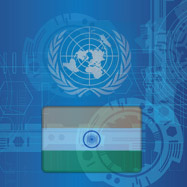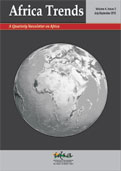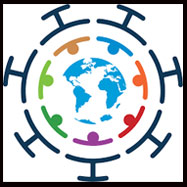Technology and Peacekeeping: Can India become a Technology-Contributing Country
To sustain its historical interest and influence in the UN peacekeeping operations, India should provide technical assistance to the missions while continuing to contribute troops, rather than a complete transformation from being a traditional troop contributor to a technology contributor.
-
Published:
September 14, 2021
-
-
WTO TRIPS Waiver and COVID-19 Vaccine Equity
The vaccine inequity is not only morally indefensible but clinically counter-productive. Allowing most of the world’s population to go unvaccinated will only spawn new virus mutations. Preventing this humanitarian catastrophe requires removing barriers – such as TRIPS – to vaccine production and its equitable distribution.
India in the United Nations: Interplay of Interests and Principles
The year 2020 marked 75 years of India’s association with the United Nations. India was one of the founding members of the UN when its institutional edifice was built in 1945. Since then, the concept of UN centrality in international peace and security matters is one of the features of Indian foreign policy. Over the decades, India played an active role in the UN’s political process and significantly contributed to its policies and programmes. At the UN, India stood at the fore of the struggle against colonialism and apartheid.
Exit of the African Union-United Nations Hybrid Operation in Darfur (UNAMID)
UNAMID's exit did not emerge from a context of peace or progress towards conflict resolution in Darfur. Instead, the exit decision was essentially the outcome of the reflection that keeping the mission on the ground would not change the situation. Initially, the hybrid peacekeeping model was seen as a paradigm shift in peacekeeping operations, and many hailed it as the future of UN peace operations.
-
Published:
January-December 2021
-
-
The Perils of Vaccine Nationalism
COVID-19 vaccine hoarding by wealthy nations will prolong the pandemic, and result in greater economic and social damage.
-
Published:
January 04, 2021
-
-
India’s Apps Ban: Preparing for Long Haul
While India’s decision to ban Chinese apps is legally tenable under both domestic IT laws and international trade rules, it is important that any ambiguity in the ban order that can be challenged at WTO is effectively addressed.
Hara-kiri Multilateralism: United Nations Response to COVID-19
The COVID-19 pandemic has exposed vulnerabilities of the international system, particularly those of multilateral institutions. When the much spoken borderless threat became a reality, the multilateral institutions were found not only unprepared but acting in a self-destructive mode.
From Bush to Trump: American Exceptionalism and its implications for Multilateralism
Associate Fellow, Manohar Parrikar IDSA, Dr. Rajeesh Kumar’s chapter on American exceptionalism, titled ‘From Bush to Trump: American Exceptionalism and its implications for Multilateralism’ has been published in Arzu Merali & Faisal Bodi, eds. The New Colonialism: The American Model of Human Rights, London: IHRC, 2019.
The chapter examines the implications of American exceptionalism, belief that the US differs qualitatively from other nations, on multilateralism by analysing the US foreign policy from President George W. Bush to Donald Trump. It argues that American exceptionalism always seeks to safeguard the sovereignty of the US in all aspects of global politics, and this approach often transformed into unilateral international actions and challenged the very existence of multilateral institutions.
More [+]
Is Revitalising SAARC Possible and Rational?
Associate Fellow, Manohar Parrikar Institute for Defence Studies and Analyses, Dr. Rajeesh Kumar’s article on SAARC, titled ‘Is Revitalising SAARC Possible and Rational?’ has been published in the Spring-Summer 2020 edition of Journal of Social, Political, and Economic Studies (JSPES).
The article explores, as a regional organisation, how SAARC has failed to promote cooperation in the region. Against the backdrop of the structural fragility of SAARC and conflict among member states, this article examines the possibility and pragmatism of revitalising SAARC and argues that even if reinvigorated through structural reforms, the organisation will not be able to contribute to regional cooperation and development.
Read Article [+]
-
Published:
18 March, 2020
-
-
















